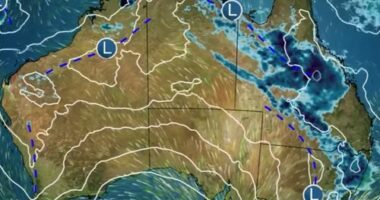Share this @internewscast.com
According to experts, it’s challenging to assess the sustainability of harvesting these crustaceans because of regulatory shortcomings in Australia’s hermit crab trade.
A little-known industry
But reliable data on hermit crab harvesting is scarce.

In an average year, Merv Cooper gathers 30,000 crabs from the beaches of Western Australia for distribution to pet stores nationwide. Source: Getty / Jamie La
Australian states and territories are responsible for domestic trade, including licensing requirements. This makes it difficult to determine the exact number of active hermit crab export operators in Australia, the quantity of crabs they collect, and the potential impact of this activity.
Tim Nichols, a WA Fisheries manager, stated to the ABC in 2022 that the species is plentiful, and the current fishing levels are unlikely to jeopardize their population.
‘Relying on self-reporting’: Expert raises concerns
While the international export of native species is subject to federal regulation, hermit crabs are not formally listed as protected. Invertebrates often fall through regulatory gaps, Feddema said, because they’re harder to monitor and traditionally not perceived as sentient.

Kim Feddema, a wildlife trade expert, said more regulation is necessary in the industry to ensure the welfare of hermit crabs and to understand the environmental implications of their removal. Credit: Stephen Heath / Edith Cowan University
Globally, land hermit crabs are harvested for both the pet and shell trade. While shells are often sold as decorations, Feddema notes they once housed live animals.
“We’re relying on self-reporting here,” Feddema said. “There’s no verification of what’s being collected or the long-term impact on local populations.”
Are hermit crabs suitable pets?
In its proposal, Crazy Crabs said its experience in taking, holding and transporting hermit crabs “has reduced the mortality rate during transit to practical zero for the last ten years”.













